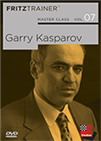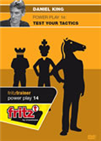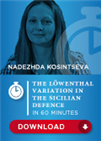Fighting chess galore
With the Olympiad close by, we can reflect on the correlation between how important national championships are taken in each country and the strength of their national teams — the U.S. Championships and the Russian Superfinals are stand-alone remarkably strong events. Furthermore, a chess tradition that goes back to the Soviet years makes the Russian championship a particularly prominent tournament, one where the players put everything on the table.
Another factor that makes this a special event is the sheer large number of strong players in Russia. Out of the five highest-rated players, four are absent (Kramnik, Karjakin, Grischuk and Svidler), and anyway the rating average is as high as 2685. For players like Andreikin, Jakovenko, Fedoseev and Vitiugov — all with a 2700+ rating — this is actually one of the strongest tournaments they play in the year. Not to mention the 2500s and 2600s, who see this as a huge opportunity to leap forward in their careers. All this makes for a very motivated group of competitive sportsmen.

The playing hall in Satka | Photo: Eteri Kublashvili / Russian Chess Federation
After six rounds, no less than six players shared the lead in the open section. Rounds seven and eight, however, left Jakovenko and Andreikin on top.
Jakovenko wins three in a row
Dmitry Jakovenko has risen in the ratings lately — he shared first place in Palma de Mallorca's stage of the FIDE Grand Prix and won this year's Karpov Poikovsky tournament. His clear improvement even gave him a place in Russia's Olympiad team.
After his sixth round win over rating favourite Ian Nepomniachtchi, Jakovenko went on to defeat Alexey Sarana and Grigoriy Oparin, whose sole lead was short-lived. Against Sarana, Jakovenko repeatedly took advantage of a discovered check to seal the victory with Black:
 On this DVD a team of experts gets to the bottom of Kasparov's play. In over 8 hours of video running time the authors Rogozenko, Marin, Reeh and Müller cast light on four important aspects of Kasparov's play: opening, strategy, tactics and endgame.
On this DVD a team of experts gets to the bottom of Kasparov's play. In over 8 hours of video running time the authors Rogozenko, Marin, Reeh and Müller cast light on four important aspects of Kasparov's play: opening, strategy, tactics and endgame.
White has just taken on e7 with his bishop and is threatening to win the exchange. However, that is completely irrelevant, given Black's perfectly positioned attacking pieces. After 26...Ne2+, White's king can only go to f1 — going to h1 would be followed by ...Nf2 mate. Now, Black can give endless discovered checks with the a6-bishop…and so did Jakovenko, gaining time on the clock while finding the winning continuation. He found it seven moves later:
Black has just played 33...Rc2, and here came White's decisive mistake: 34.Ne1. After 34...Nf4+ 35.Kg1 Rxg2!, Sarana resigned, as 36.Nxg2 Nh3+ 37.Kh1 Nef2# is inevitable.

Dmitry Jakovenko will be in Batumi representing Russia | Photo: Eteri Kublashvili / Russian Chess Federation
Dmitry's eight round win over Oparin can be described as a masterful maneouvering game. The player from Nizhnevartovsk nurtured a small initiative patiently until gaining first a pawn and then an exchange past the 50th move. Jakovenko's maneouvering ability is particularly evident from move 33 until move 40, when he dribbled with his queen in enemy camp no less than seven times:
Andreikin rises slowly
The other Dmitry in the field also accumulated 5/8 points to share the lead. Andreikin, however, took a different path — he won two games with White and drew the rest. Interestingly, both of his victories were strategical battles that finished exactly after 63 moves. His first round victim was Denis Khismatulin, who is having a bad time in Satka — he lost four and drew four and is in the cellar with 2/8. In the eighth round, Andreikin defeated Daniil Dubov after outplaying his 22-year old opponent in the middlegame to reach an endgame with an exchange up. He then convincingly converted his advantage into a win:
A nice combination
Nikita Vitiugov has also been recruited to represent Russia in the Olympiad. Unlike Jakovenko, however, he is not having a good tournament so far. He lost against Vladimir Fedoseev in round eight — Fedoseev is on 4½/8. The players had been moving around waiting for their opponent to misstep in a materially balanced but asymmetrical position. Until Fedossev found a hard-to-see combination on move 52. After seeing the winning sequence, it is hard to blame Vitiugov for his blunder on move 51:
 On this DVD Grandmaster Daniel King:
On this DVD Grandmaster Daniel King:
● demonstrates typical tactical patterns
● shows how strong players use their tactical awareness
● puts your tactical abilities to the test — but this is a test with a difference. Although the emphasis is on tactics, there are also positions that require a strategic solution. You don’t know what’s coming next...
White followed with 52.Bxh5! and showed the point of the combination with 52...Kxh5 53.Rf7!. Black's best response is 53...Kg4 (after 53...Qd8, there is mate with 54.Rh7+ Kg4 55.Rg7+ Kh5 56.g4+! Kh4 57.Qg3#). White took the queen and Black resigned a move later.

Vladimir Fedoseev achieved a nice win over Vitiugov | Photo: Eteri Kublashvili / Russian Chess Federation
Standings after eight rounds (Open)
All games Rounds 1-8
Girya and Kashlinskaya top the standings
The fighting chess has also been present in the women's section. No less than 30 out of 48 games have been decisive. Thus, it is not a surprise that the leaders are on +3 — instead of the +2 that is shared at the top of the standings in the men's section. Olga Girya is still undefeated and — like Andreikin — has won only with White. On the other hand, Alina Kashlinskaya — like Jakovenko — has lost one game so far.

Olga Girya | Photo: Eteri Kublashvili / Russian Chess Federation
Rating favourite Alexandra Kosteniuk is having a roller coaster tournament — she has won three and lost three in eight games. However, her sixth round win over Aleksandra Goryachkina had a beautiful finish:
 In this 60 minutes video GM Nadezhda Kosintseva offers White a repertoire to counter the Löwenthal Variation.
In this 60 minutes video GM Nadezhda Kosintseva offers White a repertoire to counter the Löwenthal Variation.
Black has just threatened White's queen with 24...Nd3. Kosteniuk completely ignored the threat and played the decisive 25.Nh6! — Goryachkina captured the queen, but had to resign after 26.Nxf7+, as Black is about to lose everything on d8 (after 25…gxh6, 26.Qf6+ is mate-in-two). It is worth noting that after 26...Kg8 27.exd8Q+ Rxd8 28.Nxd8+ Kf8, Black cannot save her queen after 29.Bc5+! (see diagram below), as 29...Qxc5 is followed by the fork 30.Ne6+. A wonderful finish!

Alexandra Kosteniuk is the highest-rated player amongst the women | Photo: Eteri Kublashvili / Russian Chess Federation
Standings after six rounds (Women)
All games Rounds 1-8 (Women)
Links
























